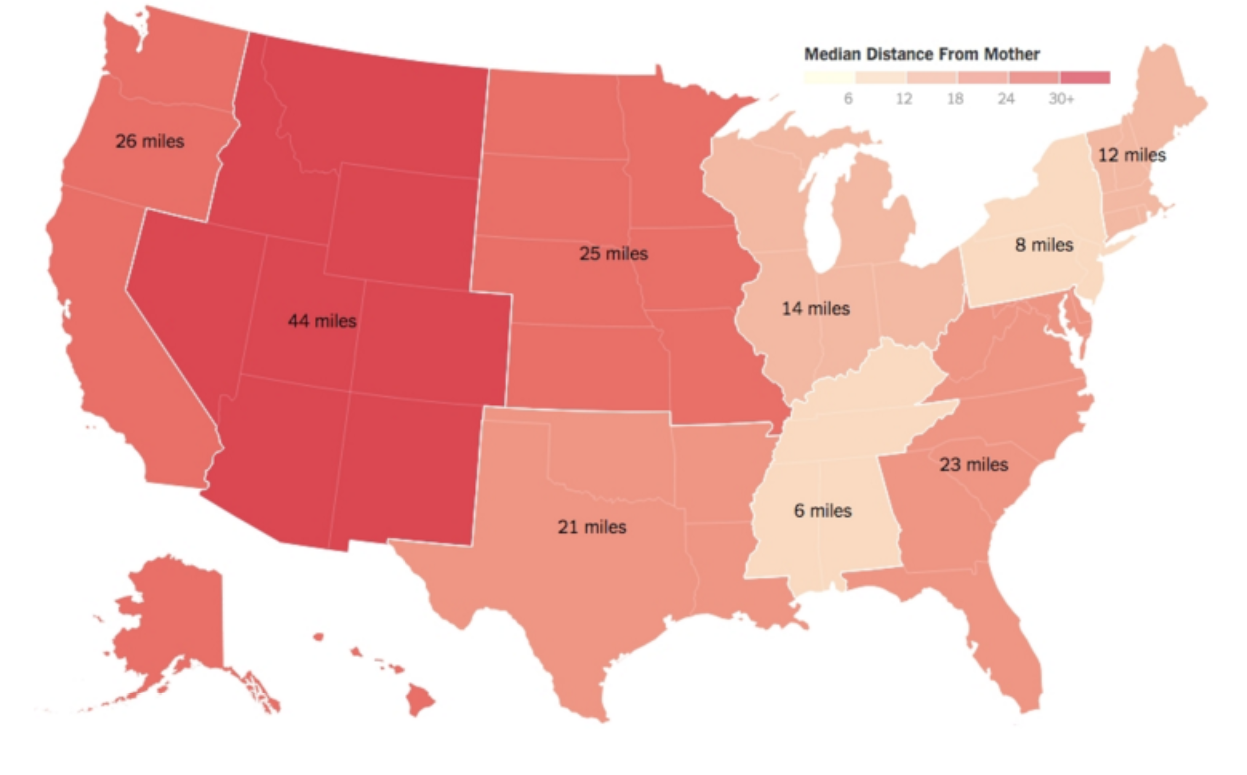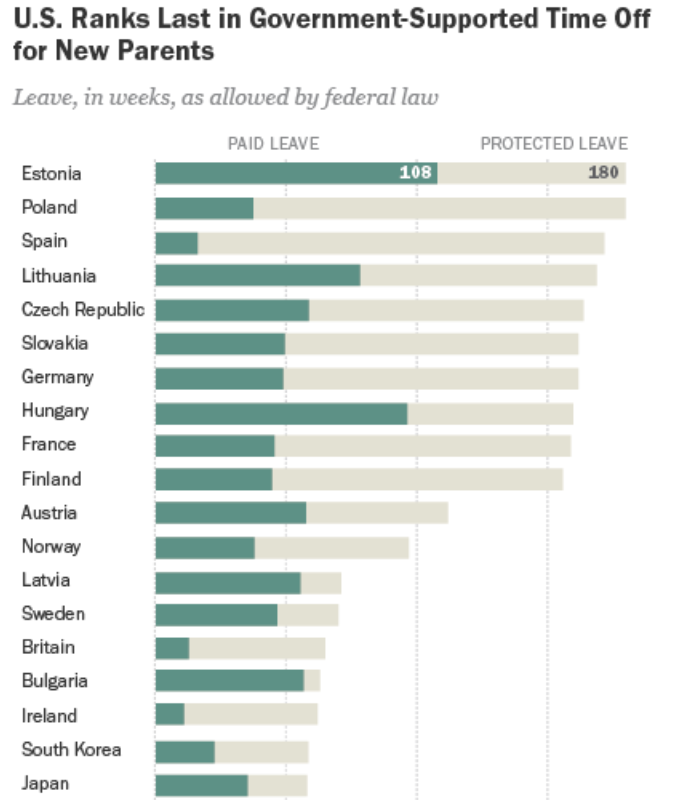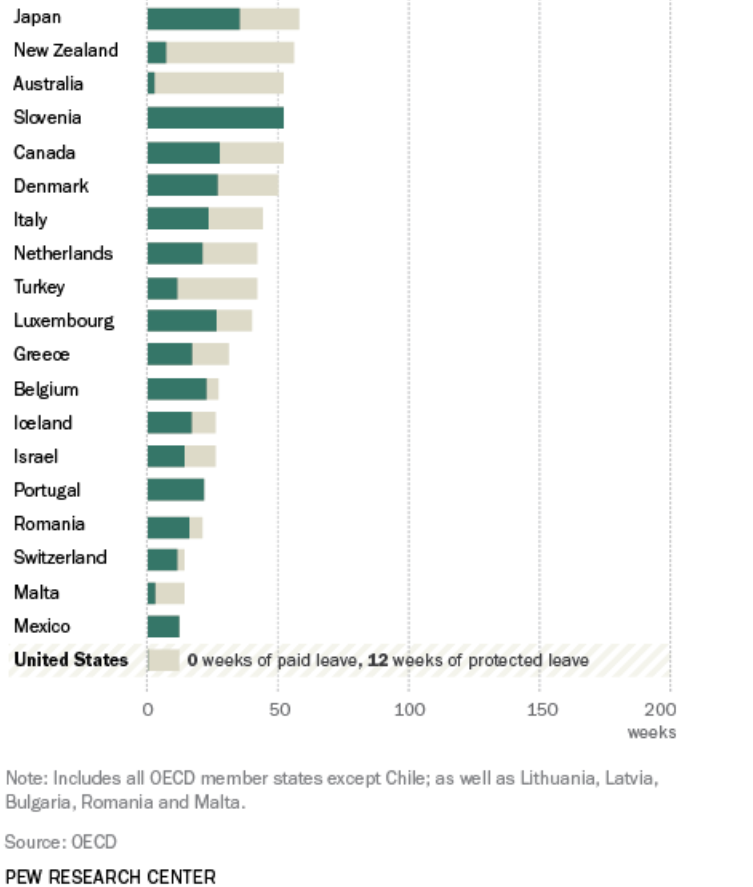Here's Why You're More Likely to Live Closer to Your Parents

By:
For a lot of people, leaving the nest and moving far away from your hometown is a dream come true. It fits with America's beloved individualistic culture of self-reliance and independence. But a study reported by the New York Times reveals that half of American adults end up living just miles away from their parents based on two factors: income and where they grow up.
Related: Should more states adopt the "housing first" model?
In a study by the University of Michigan Retirement Research Center, researchers found that half of Americans live just 18 miles away from their mothers, and only 20 percent live more than a few hours from their parents' home.
Families with the most distance apart from each other are in states on the West Coast while families who live the closest to each other are in Northeast and southern states.
 The Health and Retirement Study 2008 - umich.edu
The Health and Retirement Study 2008 - umich.edu
Researchers say that the new trend will continue as parents of the baby boomer generation get older and as working parents increasingly need assistance taking care of their children.
Related: America Has the Worst Family Leave Policies Of Any Developed Country
As the New York Times points out, the government offers less in supplying Americans with support for care-giving than other rich nations. For instance, the U.S. ranks last in government-supported time off for new parents. The U.S. currently has the Family Medical Leave Act which grants paid-leave to employees for "up to 12 weeks to take care of yourself, a child or a family member," the Washington Post reports. However, because of strict guidelines the act fails to cover 40 percent of the the U.S. workforce.
 Pew Research Center/OECD - pewresearch.org
Pew Research Center/OECD - pewresearch.org
 Pew Research Center/OECD - pewresearch.org
Pew Research Center/OECD - pewresearch.org
The Washington Post also notes that child care and education eat up the most of a family's budget behind mortgage and rent.
But the main reasons Americans are staying close to their parents is a matter of social class and education. Adult children with college degrees are more likely to land more job opportunities and those opportunities may lead to jobs in different states. Also, those who are wealthier can afford to pay for child-care assistance.
Related: America Has an Affordable Housing Crisis
“If you go to college, you’re more likely to work away from the place you grew up,” the study's other co-author Janice Compton said. “Plus, you’re more likely to marry someone who’s not from your hometown and or even from your state. And since your mothers don’t live in the same area, you are less likely to move to be close to one mother but not the other.”
“It speaks to a class divide in the population,” the study's co-author Robert A. Pollak said. “Particularly as you go further down the socioeconomic scale, people are living pretty close to their parents, and this means they’re able to provide help.”
And depending on race, you might be more likely to live near your mother. The study found that Blacks are more likely to live with and near to their parents than whites. And although Latinos are no more likely to live near their parents than whites, they are twice as likely to live with parents. In fact, according to another study Latinos are more likely to give in-person care to relatives versus Euro-Americans who are more likely to offer their family members financial support.
